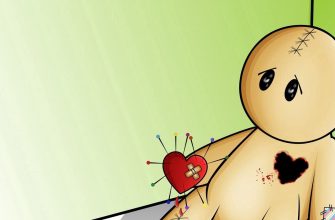The development of professional policing in England
At the same time that the lieutenant general of police was trying to maintain public order in Paris, the reactive and inefficient urban policing system of England, in which nearly unpaid public constables had to rely on private, stipendiary thief-takers to maintain an appearance of law and order, was falling apart. The hallmark of this system was its hybrid character: it blended discredited high constables with corrupt bounty hunters. Serious crimes and disorders in the cities reached intolerable levels, and the military and the yeomanry were called upon to quell rioting with increasing regularity.
In response to the high level of crime in London, the brothers Henry and John Fielding, both of whom served as magistrates at Bow Street Court, created a salaried constabulary in 1750. The organization, known as the Bow Street Runners, patrolled the highways and streets within the parish of Bow Street. (An act of Parliament later created several more offices based on the Bow Street model.) However, there was little popular or governmental support for the creation of a salaried, professional police force throughout England at that time.
By the late 18th century, a number of political leaders and writers had called for further reforms to the system of policing in London. The Scottish economist Patrick Colquhoun, rightly considered the architect of modern policing, provided theoretical support for police reforms in A Treatise on the Police of the Metropolis (1796), in which he applied business principles to police administration. Colquhoun also wrote A Treatise on the Functions and Duties of a Constable, which may be his most novel book. Its crucial innovation was its emphasis on the personal qualities needed to be a member of a constabulary force—notably, efficiency and zeal. Colquhoun also stressed the need for police integrity and other moral virtues.
One of the most significant experiments in police reform during this period was the creation in 1798 of the Thames River Police, the first regular professional police force in London. Organized to reduce the thefts that plagued the world’s largest port and financed by merchants, the force was directed by Patrick Colquhoun and consisted of a permanent staff of 80 men and an on-call staff of more than 1,000. Two features of the marine police were unique. First, it used visible, preventive patrols; second, officers were salaried rather than stipendiary, and they were prohibited from taking fees. The venture was a complete success, and reports of crimes dropped appreciably. (In July 1890 the House of Commons passed a bill making the marine police a publicly financed organization.)
Yet, despite the efforts of Colquhoun and other reformers, powerful forces in England worked to maintain the status quo. Every alternative to the stipendiary system required substantial public funding, and raising taxes was not popular. In addition, provincial leaders viewed inefficiency and corruption as “London” problems and believed that the constabulary system worked satisfactorily in their areas. Finally, the very idea that government would become actively involved in policing violated the basic tenets of the dominant political philosophy of the era, which held that the government that governed least governed best. Concerned about the threat of political centralization and aware of the political abuses of the French, or “Continental,” police, many political leaders in England feared that a standing police force would be used for political purposes. Debate about the creation of such a force raged during the early part of the 19th century.
It is significant, however, that English politicians already had instituted a standing police force in Ireland, in response to serious challenges to English rule there in the 1780s. The Dublin Police Act (1786) created a professional uniformed and armed centralized police force in Dublin (then the second largest city in the British Isles) consisting of 40 horse police and 400 constables. The creation of the force encountered great resistance at first, as it was perceived to be patterned after the French Gendarmerie Nationale—and, in fact, it was. The Dublin police force was reformed in 1795 and 1808. By 1812, when Robert Peel, the founder of modern professional policing in England, was appointed chief secretary for Ireland, Dublin was considered relatively free of crime.
Later, as home secretary, Peel sponsored the first successful bill to create a professional police force in England. The Metropolitan Police Act (1829) established the London Metropolitan Police Department, an organization that would become a model for future police departments in Great Britain, the British Commonwealth, and the United States. The “New Police,” as the force was called, was organized into a hierarchy of ranks in military fashion. Ranking officers were to be promoted from within, on the basis of merit. The basic police officer, the uniformed constable, was unarmed and had limited authority. Unlike other municipal police forces in Ireland and continental Europe, the London Metropolitan Police Department was designed to maintain close ties with and to draw support from the people it policed. The primary function of the force was crime prevention, and officers were instructed to treat all citizens with respect. Crime was to be controlled and public order maintained by preventive patrols; police were to be paid regular salaries; and no stipends were to be permitted for solving crimes or recovering stolen property. Constables also inherited many functions of the watchmen, such as lighting streetlamps, calling time, watching for fires, and providing other public services.
Nicknamed “bobbies” (in reference to Peel), the metropolitan constables were not immediately popular. Most citizens viewed them as intrusive and illegitimate, and they were often jeered. However, they eventually overcame the public’s misgivings, and they gained a worldwide reputation for the excellence of their leadership. Peel appointed Charles Rowan, an army colonel, and Richard Mayne, an Irish barrister, as the first commissioners of the force; both men were strong leaders and effective administrators who instilled in their officers the values embodied in a mission statement popularly known as Peel’s Principles. According to those principles, police should demonstrate impartiality, focus on crime prevention, carry out their duties within the limits of the law, work in cooperation with the public so that the public voluntarily observes the law, and use force only to the extent necessary to restore order and only when other means have been exhausted. Contemporary police scholars consider Peel’s Principles to be as relevant a guide for police departments in the 21st century as they were in the 19th.
The preventive tactics of the metropolitan police were successful, and crime and disorder declined. The force’s pitched battles with (and ultimate victory over) the Chartists (see Chartism) in London and in Birmingham (where a group of London officers was specially dispatched) proved the ability of the police to deal with major public disturbances and street riots. Yet, despite those early successes, the expansion of police forces to rural areas was only gradual. The Municipal Corporations Act of 1835 ordered all incorporated boroughs to set up police forces under the control of a watch committee, but police forces for the provinces were not mandated until 1856, when Parliament passed the County and Borough Police Act. The principles embodied in the Metropolitan Police Act—in particular, that officers should be uniformed, that command and control should be exercised through a centralized, quasi-military hierarchy, and that the authority of the police should derive not from politicians but from the crown, the law, and the consent of the citizenry—shaped the development of modern policing in Britain and in many other countries throughout the world.
Police profession — Профессия полицейский

Until recently, police could only be seen in foreign films or on the streets of other countries. But since 2011, the police have appeared here as well, they have replaced the militiamen.
It should be said that the police is not a new phenomenon for Russia, it existed under Peter I. At that time, the police, besides ensuring security, was engaged in the publication of laws and even participated in religious ceremonies. Later, the main task of the police became a concern for public order. After the popular uprisings and the change of the political regime in 1917, the police ceased to exist (the police began to follow the order) and was revived only after almost 100 years.
A modern policeman can be recognized by a special uniform and the presence of a pistol, a rubber truncheon, and handcuffs. Such “tools of labor” are necessary for him in cases where violators refuse to maintain order and the police officer is forced to use force.
A policeman is the chief guard of public order. No major event can be imagined without police officers. And on other days, police officers on duty patrol the streets of each city.
The policeman ensures that the health and property of law-abiding citizens are in complete safety. With those who violate the law, the policeman acts a little differently. In this case, the police officer is fully responsible for the offender and therefore cannot inflict bodily injuries on him (it is allowed to use force only in extreme cases).
The policeman also conducts lectures and conversations in various organizations (including among schoolchildren), examines complaints submitted to him.
Currently, the Police profession is considered to be very popular in the labor market. Many firms and many enterprises need qualified specialists in this field, because the industry is developing rapidly, and specialists are just getting educated.
Презентация по английскому языку на тему » Работа полиции»
специалист в области арт-терапии
Описание презентации по отдельным слайдам:
THE WORK OF POLICE Подготовила: преподаватель ГБПОУ СПО колледж полиции Афтений М.В.
Our militia was created by the working people to protect their rights. The militia officers have always displayed courage and heroism in the fight against enemies of our state during the Great Patriotic War.
In 2011 the name militia was changed. Now it’s called police.
The main aim of police is: to maintain public order to protect state and personal property to safeguard the rights of our citizens.
Today great attention in the work of police is paid to prevention of crime, but if a crime has been committed, the police officers must solve the crime as quickly as possible.
The Organs of Internal Affairs are composed of different departments: the Criminal Detection Department the Criminal Investigation Department Economic Crimes Department the State Auto-Inspection the Transport police the Juvenile Inspection the Correctional System the Service for the fight against organized crime
The officers of the Criminal Detection Department must detect, locate and arrest the criminal, trace a fugitive who is hiding.
The officers of the Criminal Investigation Department must collect facts to prove the guilt or innocence of the suspect, to present the evidence in court and to provide competent witnesses.
The State Auto-Inspection is responsible for safety on the roads.
The Transport Police maintains Law and Order on the railway, air lines and water ways of the country.
The Juvenile Inspection works with «difficult» juveniles and their parents.
Данная презентация может быть полезна преподавателям юридических учебных заведений.
Тема «Работа полиции» способствует формированию у учащихся активной гражданской позиции, воспитывает уважение к профессии сотрудника внутренних органов, помогает учащимся в профориентации и самоопределнии, и, возможно, в выборе отдела полиции для дальнейшей службы после окончания учебного заведения.
Она отражает такие аспекты, как:
-цели и задачи полиции;
-отделы полиции и служебные обязанности офицеров;
-более подробная иформация о некоторых отделах.
Презентация сопровождается соответствующими изображениями.
Номер материала: 301279
Не нашли то что искали?
Оставьте свой комментарий
16 российских вузов впервые попали в международный рейтинг QS
Время чтения: 2 минуты
Каждый третий школьник отстает в учебе
Время чтения: 3 минуты
Власти Ямала сделали доступней льготное образование для детей из коренных северных семей
Время чтения: 2 минуты
Итальянский учитель дал детям задание на лето и прославился
Время чтения: 4 минуты
Рособрнадзор: почти половина учителей не дотягивает до базового уровня подготовки
Время чтения: 2 минуты
В российском регионе отменили выпускные вечера в школах из-за коронавируса
Время чтения: 1 минута
Подарочные сертификаты
Ответственность за разрешение любых спорных моментов, касающихся самих материалов и их содержания, берут на себя пользователи, разместившие материал на сайте. Однако администрация сайта готова оказать всяческую поддержку в решении любых вопросов, связанных с работой и содержанием сайта. Если Вы заметили, что на данном сайте незаконно используются материалы, сообщите об этом администрации сайта через форму обратной связи.
Все материалы, размещенные на сайте, созданы авторами сайта либо размещены пользователями сайта и представлены на сайте исключительно для ознакомления. Авторские права на материалы принадлежат их законным авторам. Частичное или полное копирование материалов сайта без письменного разрешения администрации сайта запрещено! Мнение администрации может не совпадать с точкой зрения авторов.
Сочинение “My future profession — Моя будущая профессия”
Как рассказать или написать о своих планах в профессиональной сфере? Возьмем за основу несколько сочинений на тему “My future profession — Моя будущая профессия”.
Сочинение 1 «My future profession»
There are plenty of different professions. Some of my friends want to be doctors, others want to be lawyers or journalists, some want to become designers, IT workers. But I’ve always had a particular interest to advertising. So, I‘ve already decided what I want to do, when I grow up. I want to have a job where I can apply my creative skills. I‘d like to have a job of a creative director in an advertising agency. If you want to be a good art director, you need to be creative. The way advertisement motivates people to do something what they actually didn’t plan to do is fascinating. I also strongly believe that work of creative director can be compared with art. A good advertisement is really an art object.
I strongly believe that if I am persistent and ambitious, everything becomes possible. However, I‘m absolutely convinced that without good grades at school the success in one’s future career is out of the question.
Перевод «Моя будущая профессия»
Есть много разных профессий. Некоторые мои друзья хотят быть докторами, другие хотят стать адвокатами или журналистами., некоторые хотят стать дизайнерами и работниками ай-ти сферы. Но меня всегда интересовала реклама. Я уже решил, чем я хочу заниматься, когда повзрослею. Я бы хотел найти работу, которая требует творческой составляющей. Я бы хотел работать креативным директором в рекламном агентстве.
Если ты хочешь быть хорошим арт-директором, нужно быть креативным. Способ, благодаря которому реклама призывает потребителя сделать что-то, чего он, в сущности, не планировал сделать, действительно завораживает. Я так же верю, что работа креативного директора может сравниться с работой художника. Хороший рекламный ролик действительно является произведением искусства.
Я верю, что если быть настойчивым и целеустремленным, все возможно. Однако я так же считаю, что без хороших оценок в школе успех в будущей карьере невозможен.
Сочинение 2 Doctor
There are many interesting and noble professions. I want to be a doctor. It is an interesting profession.
I understand that it is necessary to study a lot to become a doctor. I also understand that this profession requires great responsibility because it deals with the most precious thing that a person has — with his health.
My mother and my grandfather are doctors. My grandfather is working as a surgeon in a hospital. I have been several times at the hospital and spent some time watching him working.
His main task is to operate on the people. After each operation he takes care of patients until they are recovered.
He listens very attentively to what his patients tell him. He is always kind and attentive to his patients. They feel it and believe him, and it makes his work easier. I know that he wants to see all his patients able — bodied and I notice that he is happy when his patient is recovered.
My grandfather can also help if somebody catches a cold or has a fever. My grandfather told me a lot of true stories about doctors and their profession.
I love and respect my grandfather and want to become a doctor as well.
Перевод «Моя будущая профессия» (Врач)
Есть много интересных и благородных профессий. Я хочу быть врачом. Это интересная профессия.
Я понимаю, что нужно много учиться, чтобы стать врачом. Я также понимаю, что эта профессия требует большой ответственности, так как она связана с самым ценным, что есть у человека — с его здоровьем.
Моя мама и мой дедушка — врачи. Мой дедушка работает хирургом в больнице. Я несколько раз был у него в больнице и наблюдал, как он работает.
Его главная задача состоит в том, чтобы оперировать людей. После каждой операции он заботится о пациентах, пока они не выздоровеют.
Он внимательно слушает то, что пациенты ему говорят. Он всегда добр и внимателен к своим пациентам. Они это чувствуют и доверяют ему, что облегчает его работу. Я знаю, что он хочет видеть всех своих пациентов здоровыми, и я заметил, что он счастлив, когда его пациент выздоравливает.
Мой дедушка также может помочь, если кто-то простудился, или у него высокая температура. Мой дедушка рассказал мне много правдивых историй о врачах и их профессии.
Я люблю и уважаю своего дедушку и хочу тоже стать врачом.
Сочинение 3 «My future profession» (Economist)
Plans for future is a problem that worries not only me, but my friends, classmates, parents and teachers. The reason is that at the age of 17 we have to make a very important choice in our life – the choice of a profession. On the one hand, I’m adult enough to have an opinion of my own about what I’m interested in and what I’m good at. On the other hand, at this age we lack life experience and our desires sometimes don’t coincide with our possibilities. That’s why it’s very important to have somebody to give us a piece of advice. Such people are our parents, teachers and friends.
As for me, I want to be an economist. I like to read books of economics, research articles and analyze them. Nowadays this profession has become one of the most useful, modern and interesting. Also, I want to study economics as I’m very interested in current economic processes both in our country and in other countries. It’s not a secret that our country (Russia, Ukraine, Belorussia, Kazakhstan) is now through a difficult periods of times. That’s why it’s very important for our country to have efficient economists to raise our economy at a high level.
I hope that I’ll be a good economist. Like many other people I would like to spend a year abroad working as an economist. It would give me an opportunity to borrow the experience and to see the world.
So, I’ll do everything to become a good economist and I’m sure I’ll never regret my decision to follow this career.
Перевод «Моя будущая профессия» (Экономист)
Планы на будущее – это проблема, которая волнует не только меня, но и моих друзей, одноклассников, родителей и учителей. Дело в том, что в возрасте 17 лет мы должны сделать очень важный выбор в своей жизни – выбор профессии. С одной стороны, я достаточно взрослый, чтобы иметь свое мнение о том, что мне интересно и что у меня получается. С другой стороны, в этом возрасте нам все же не хватает жизненного опыта, и наши желания не всегда совпадают с нашими возможностями. Вот почему очень важно, чтобы кто-то дал полезный совет. Такие люди – это наши родители, учителя и друзья.
Что касается меня, то я хочу быть экономистом. Мне нравится читать книги по экономике, изучать статьи и анализировать их. Сегодня эта профессия стала одной из самых полезных, современных и интересных. Также я хочу изучать экономику, так как я интересуюсь текущими экономическими процессами и в нашей стране, и в других странах. Не секрет, что наша страна (Россия, Украина, Белоруссия, Казахстан) сейчас переживает трудные времена. Вот почему очень важно для нашей страны иметь квалифицированных экономистов, чтобы поднять экономику нашей страны на более высокий уровень.
Я надеюсь, что я буду хорошим экономистом. Как многие другие люди, я хотел бы провести год заграницей, работая экономистом. Это дало бы мне возможность перенять опыт и увидеть мир.
Таким образом, я сделаю все возможное, чтобы стать хорошим экономистом и я уверен, что никогда не пожалею о своем выборе.
Сочинение 4 «My future profession»
“If you don’t think about your future, you can’t have one”, — I agree with these words said by John Galsworthy. I’m convinced that today everyone worries much about the problems of the future alongside with the problems of getting along with their family and friends. Of course, it is not simple to choose an occupation at my age. It is not an easy to choose a profession out of more than two thousand existing in the world.
We are well aware of the situation in our society and we realize that the situation around forces us to do well at school. It gives you a goal for working hard. The role played by school in our life is hard to overestimate. It teaches us many subjects and other important things, helps to discover special talents. I personally believe that a young person can better approach his future if he manages to widen his outlook while at school and the teachers expand to great extent the boundaries of our world. For sure, our minds should be enriched with a decent level of knowledge in the vast branches of science and humanities: maths, physics, foreign languages.
As for me, I like languages, and I consider that the choice of my occupation will be connected with them. I’d like to study languages not only because I found myself extremely keen on foreign places, culture and traditions. Nowadays, English is to be learned because it’s already become the international language, pushing aside French and German.
Nearly 50 % of all the companies in Europe communicate in English. 80 % of all information in the world’s in English. It’s the language of the United Nations. The latest ideas in medicine and science appear in special international magazines also in English. That’s because both of these subjects are now completely international, for doctors and scientists everywhere are trying to answer the same questions. Every pilot and ship’s captain has to speak English. It’s the language of the sky and the sea.
So, to be honest, I haven’t decided whom to become yet, still I know that my profession will be connected with the English language.
Перевод «Моя будущая профессия»
“Если Вы не думаете о своем будущем, вы не сможете иметь такового”, — я полностью согласен/сна с этими словами, сказанными Джоном Голсуорси. Я убежден(а), что сегодня все очень волнуются о собственном будущем — никак не меньше, чем о взаимоотношениях с членами семьи и друзьями. Конечно, не просто выбрать будущее занятие в моем возрасте. Не легко выбрать профессию из более двух тысяч существующих в мире.
Что касается меня, то мне нравится изучать языки, и я полагаю, что выбор моей профессии будет связан с ними. Я хотел бы изучить языки не только потому, что меня чрезвычайно увлекает информация о зарубежных странах, культуре и традициях. В наше время английский язык нужно изучать еще и потому, что он уже стал международным языком, потеснив даже французский и немецкий языки.
Почти 50% всех компаний в Европе ведут переговоры на английском языке. 80% всей информации в мире – на английском языке. Это язык Организации Объединенных Наций. Последние идеи в медицине и науке публикуются в специальных международных журналах также на английском языке. Обе эти отрасли являются международными, так как медики и ученые во всем мире пытаются найти ответ на те же самые вопросы. Каждый пилот и капитан судна должны говорить на английском языке. Это язык неба и моря.
Честно говоря, я не решил пока, кем все же, стать. Тем не менее, я знаю, что моя профессия будет связана с английским языком.
Дополнительные выражения
Также вам могут быть полезны сочинения на тему «Моя семья», которые значительно пополнят ваш словарный запас.























